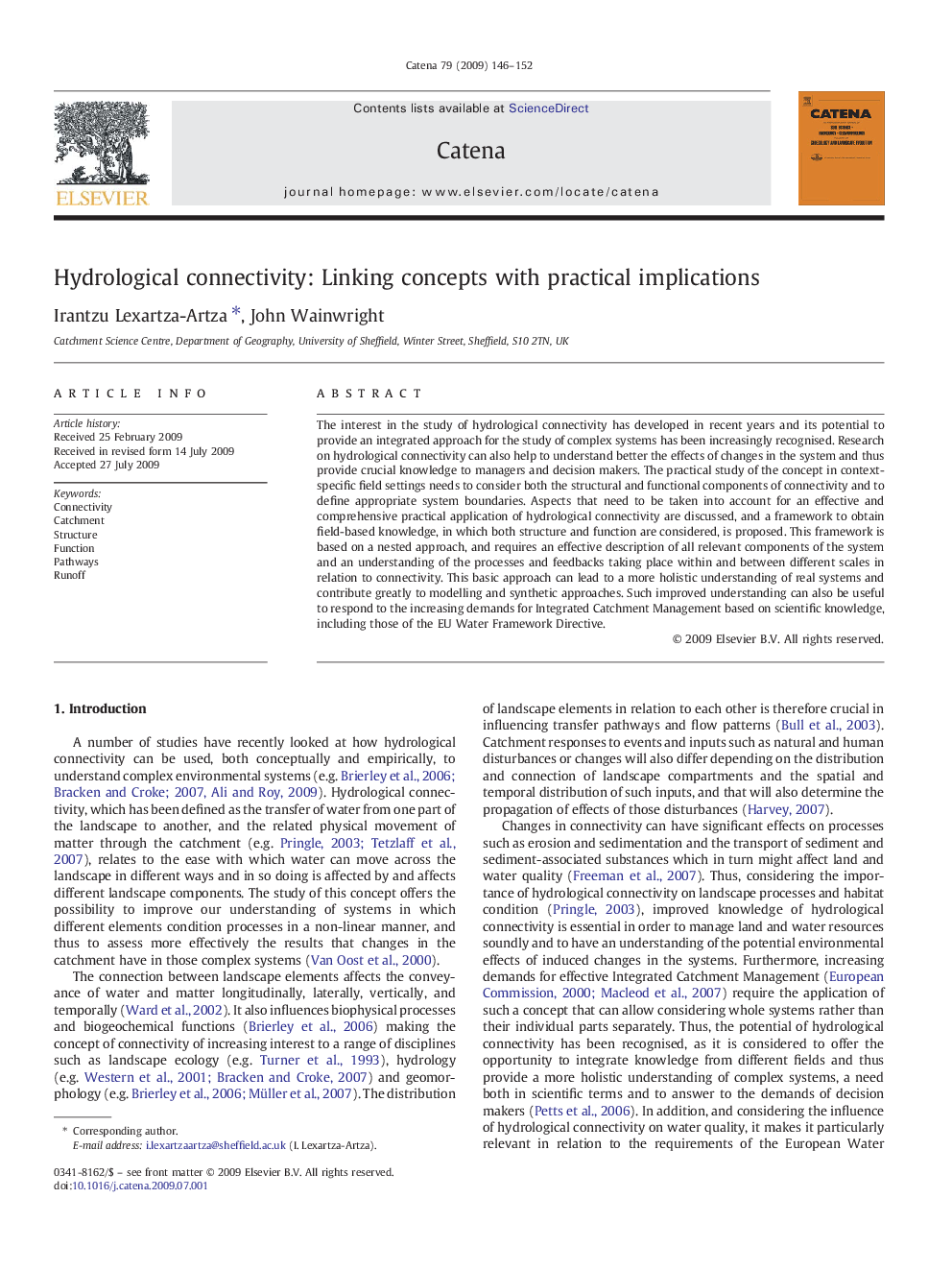| Article ID | Journal | Published Year | Pages | File Type |
|---|---|---|---|---|
| 4572297 | CATENA | 2009 | 7 Pages |
The interest in the study of hydrological connectivity has developed in recent years and its potential to provide an integrated approach for the study of complex systems has been increasingly recognised. Research on hydrological connectivity can also help to understand better the effects of changes in the system and thus provide crucial knowledge to managers and decision makers. The practical study of the concept in context-specific field settings needs to consider both the structural and functional components of connectivity and to define appropriate system boundaries. Aspects that need to be taken into account for an effective and comprehensive practical application of hydrological connectivity are discussed, and a framework to obtain field-based knowledge, in which both structure and function are considered, is proposed. This framework is based on a nested approach, and requires an effective description of all relevant components of the system and an understanding of the processes and feedbacks taking place within and between different scales in relation to connectivity. This basic approach can lead to a more holistic understanding of real systems and contribute greatly to modelling and synthetic approaches. Such improved understanding can also be useful to respond to the increasing demands for Integrated Catchment Management based on scientific knowledge, including those of the EU Water Framework Directive.
